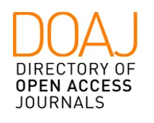Why Is Biological Teleology Non-constitutive (Merely Regulative) for Kant?
DOI:
https://doi.org/10.24117/2526-2270.2023.i15.09Keywords:
Kant, biological teleology, the regulative/constitutive distinction, life, vitalismAbstract
Doubtlessly Kant assigns a merely regulative function to biological teleology. But the reasons for Kant’s doing so are less clear. For some Kant scholars, Kant does so because, for him, the concept of natural purpose amounts at best to a subjective maxim of certain heuristic values. Appealing as it is, this view runs into difficulties when other Kant scholars note that Kant takes biological teleology to be indispensable and uses the natural purpose concept to identify biological organisms (or, more precisely, formative powers). In this article, I argue that Kant treats biological teleology as non-constitutive (i.e., merely regulative), because the concept of natural purpose is not associated with any supporting laws (biological organisms as instances or particulars of the concept of natural purpose are given, but the concept itself as a universal is only assumed). Based on this new reading, I do four more things: first, I offer a revised interpretation of Kant’s view of biological teleology; second, I clarify a Kantian stance on the concept of life; third, I solve a puzzle about the relationship between Kant, Naturphilosophie and the history of biology; fourth, I sketch some of its implications for three contemporary issues.
Downloads
Published
Issue
Section
License
Copyright (c) 2023 Bohang Chen

This work is licensed under a Creative Commons Attribution 4.0 International License.












